Introduction
Competition for jobs is strong in today’s market. The best prospects are sought after by employers, who have access to a large pool of applicants. It’s crucial to own the abilities and credentials hiring managers are looking for to stand out and secure your dream position. In this post, we’ll be discussing the top 10 skills employers are looking for in an applicant, and how you can develop them to increase your chances of landing a job.
How To Find Your Dream Job With Little to No Work Experience?
Finding your dream job might be difficult, particularly if you have no prior experience in the industry. This shouldn’t deter you, though, as there are various methods to get the knowledge and expertise required to get the career you want. To help you discover your desired dream job without experience, consider the following tips.
Develop the Required Skills
Finding your dream job depends heavily on developing the appropriate skills, particularly if you have little or no experience. Both hard and soft skills may be developed, and both are essential for success in the workplace. Personal characteristics including communication, problem-solving, teamwork, and time management are referred to as soft skills. Hard skills, such as coding, data analysis, or project management, are technical competencies particular to a given profession or sector. By putting in the time and effort to learn these skills, you will be able to demonstrate your capabilities and potential to employers, improving your chances of getting the job of your dreams.
Soft Skills
Personal qualities including communication, problem-solving, teamwork, and time management are crucial for success in any career. By engaging in extracurricular activities like volunteering, taking classes, and practicing in your own life, you can develop these talents. For instance, you may sign up for a public speaking class to improve your communication abilities or volunteer with a local group to improve your teamwork abilities.
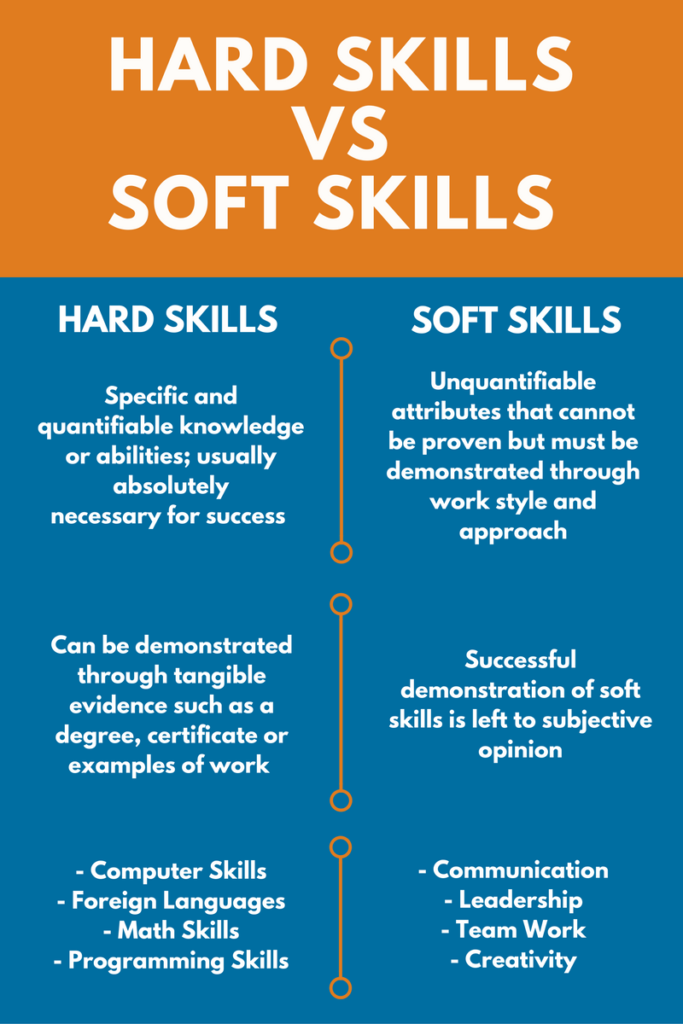
Hard Skills
Technical skills, such as coding, data analysis, or project management, are specialized to a given job or industry. Consider taking online classes, going to workshops, or earning certifications that are applicable to the field you want to work in to learn these abilities. Additionally, participation in internships or entry-level work will give you practical experience. This will allow you to put your talents to use in a practical environment and show potential employers how knowledgeable you are.
Developing both soft skills and hard skills will help you stand out from other applicants and improve your chances of getting the job of your dreams. Your ability to thrive in your desired dream job will be demonstrated to potential employers if you highlight your abilities and accomplishments on your CV and in job interviews. You can lay a solid foundation for a prosperous job in your selected industry by consistently expanding your knowledge and skill set.
Research the Industry and Companies
It’s important to research the market and employers you want to work for before you begin your job search. You can have a better understanding of the skills and qualifications needed for your dream job, as well as the culture and values of the firms you’re interested in, by researching the industry and company. To learn more about the businesses and industries that interest you, use online tools like LinkedIn, corporate websites, and trade periodicals. You can gain an advantage while applying for jobs and find potential career prospects with the aid of this information.
Build a Strong Resume
You may still build a compelling resume that highlights your achievements and transferrable talents even if you lack any relevant work experience. The terms “transferable skills” refer to abilities like teamwork, communication, and problem-solving that may be used in a variety of settings and professions. Your capacity to carry out the duties necessary for your ideal career can be shown to prospective employers by emphasizing these talents in your CV. Additionally, to make your resume more visible to applicant tracking systems, utilize keywords associated with the field and position you’re applying for.
Network
Networking is a crucial component of job searching and can result in new career prospects, helpful advice, and insightful information. Attend trade shows, get in touch with colleagues in your network, and use LinkedIn to connect with people in your target market. Because networking enables you to establish contacts with people who work at organizations that interest you, it can also boost your chances of getting an interview. Maintaining a solid network can help you learn about job openings, market trends, and chances for career advancement.
Take Relevant Courses or Certifications
You can build the skills and information required to be successful in your dream job by enrolling in classes or earning certifications relating to the field you want to work in. Additionally, it can show prospective employers that you’re dedicated to your work and eager to make an investment in your professional growth. Think about enrolling in online classes, going to workshops, or earning certifications that are related to the field you want to work in. This can provide you a competitive advantage and improve your chances of getting the job of your dreams.
Consider Internships or Entry-Level Positions
You can gain useful experience and develop your professional network through internships and entry-level roles. Find job openings that fit with your professional objectives and submit applications for them with a solid cover letter and résumé. These jobs may open up greater career prospects for you in the future and provide you the chance to get knowledge from seasoned experts in the field you want to work in. You can also lay the groundwork for your future ideal job with the help of internships and entry-level jobs, which can provide you the experience and expertise you need.
Show Your Enthusiasm
Be sure to convey your enthusiasm and passion for the field when applying for your dream job. Justify your interest in the position and your suitability for the position. Employers prefer to work with people who are passionate about what they do, so demonstrating your enthusiasm will help you stand out from other candidates. Moreover, expressing your excitement for the field

Top 10 Skills Employers Look For In an Applicant and How To Develop Them
Employers seek people who have a mix of technical and soft abilities in the competitive job market of today. You may improve your chances of securing your dream job and succeeding in your career by finding the right combination of skills and personality qualities. Here, we’ll examine the top 10 abilities that companies seek for in candidates as well as strategies for developing them. You can polish and improve these abilities to help you stand out in the job market, from communication and problem-solving to adaptability and professionalism. You may increase your attractiveness to potential employers and set yourself up for success in your chosen career by devoting time and effort to developing these talents.
1. Communication Skill
The secret to success in any work is effective communication. Employers seek people who can express themselves both orally and in writing with clarity and effectiveness. This includes the capacity to actively listen, provide and take feedback, and articulate ideas succinctly. Practice active listening, hone your writing abilities, and enroll in a public speaking course to improve your communication abilities.

Tips for improving your communication skills
- To demonstrate that you are involved in the conversation, practice active listening by paying close attention to others while they talk, asking questions, and repeating crucial points.
- Practice writing in a clear, concise, and professional manner to improve your writing. Consider taking a writing course and reading effective writing books and articles.
- Enroll in a public speaking class. You’ll be able to get over your apprehension, communicate your thoughts clearly, and hold the attention of your audience if you practice public speaking.
- Ask for feedback. Seek out constructive criticism about your communication abilities from friends, family, and coworkers.
- Take note of your body language. Nonverbal clues like posture, eye contact, and facial expressions can have a big impact on how people perceive you when you’re speaking.
- Be brief. Stay away from jargon and unnecessarily complex language, and make an effort to be straightforward and simple.
- Utilize technology for your benefit. Use online technologies like instant messaging and video conferencing to practice your communication skills in many contexts.
- Demonstrate empathy to better comprehend other people’s viewpoints and to modify your communication style, put yourself in their shoes.
2. Problem-Solving Skills
Employers are looking for applicants who can examine issues, find potential solutions, and arrive at sound judgments. This involves the capacity for independent thought, initiative, and hard labor. Take on difficult assignments, practice brainstorming, and increase your knowledge of decision-making processes if you want to improve your problem-solving abilities.
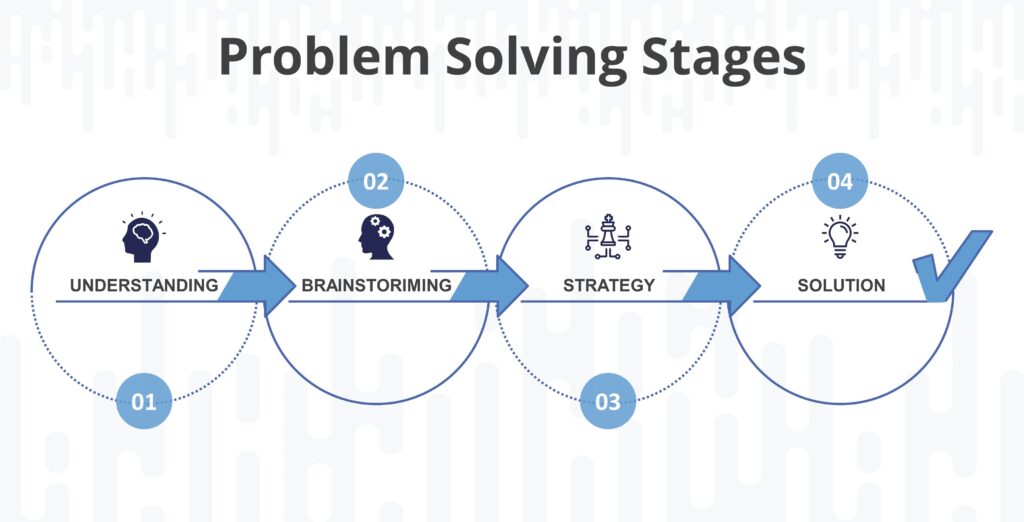
Tips for improving problem-solving skills
- Employers value problem-solving skills, which can be developed by using the following.
- Practice brainstorming by coming up with as many potential answers as you can to different issues. This will push your creative thinking.
- Increasing your knowledge to deepen your comprehension, read books and articles on problem-solving strategies and decision-making procedures.
- Take on difficult assignments. Look for projects that need you to use your critical thinking and problem-solving skills.
- Work as a team. Working together can assist you get insight into various viewpoints and problem-solving methodologies.
- Ask for opinions. Utilize constructive criticism to enhance your problem-solving skills.
- Maintain organization. To enhance your capacity for problem-solving, keep track of your work, set priorities, and manage your time efficiently.
- Seek mentorship. Take advice from more knowledgeable individuals and learn from those who have a track record of successfully resolving issues.
3. Time Management Skills
Employers need applicants that can organize their workload, effectively manage their time, and adhere to deadlines. This includes the capacity to maintain organization, establish objectives, and coordinate several tasks at once. Make a timetable, learn how to set priorities, and concentrate on one work at a time to improve your time management abilities.

To achieve effective time management skills, you can follow these tips
- Create a to-do list and rank the chores according to importance, starting with the ones that must be finished immediately. This will assist you in maintaining focus and preventing time waste on unimportant chores.
- Create a routine. Make a plan for your day and try to stick to it as much as you can. This will enable you to maintain organization and attention and stop you from wasting time on useless activities
- Utilize technology. You may track your time and prioritize work using a variety of time management tools and applications that are readily available. Pick the one that suits you the most, then employ it to manage your task.
- Avoid distractions. Time-stealing diversions like social media, email, and phone calls should be avoided. Allocate particular times to check these things, and then concentrate on your work for the remainder of the day.
- As much as you can, delegate work to others so that you can focus on more vital duties. This will also assist you in strengthening your team-building abilities and leadership abilities.
- Take pauses. Taking regular breaks will keep you focused and renewed and will help you avoid burnout. Take use of your breaks to reenergize and concentrate.
- Set manageable, realistic goals. Try to avoid overcommitting oneself to a task at a time. This will assist you in maintaining your motivation and attention on what matters.
4. Leadership Skills
Employers place a high priority on leadership capabilities. They seek applicants who can set an example for others, encourage them, and make difficult judgments. This includes the capacity to form teams, assign tasks, and mentor others. Take on leadership jobs, develop your communication skills, and research different leadership philosophies to build your leadership abilities.
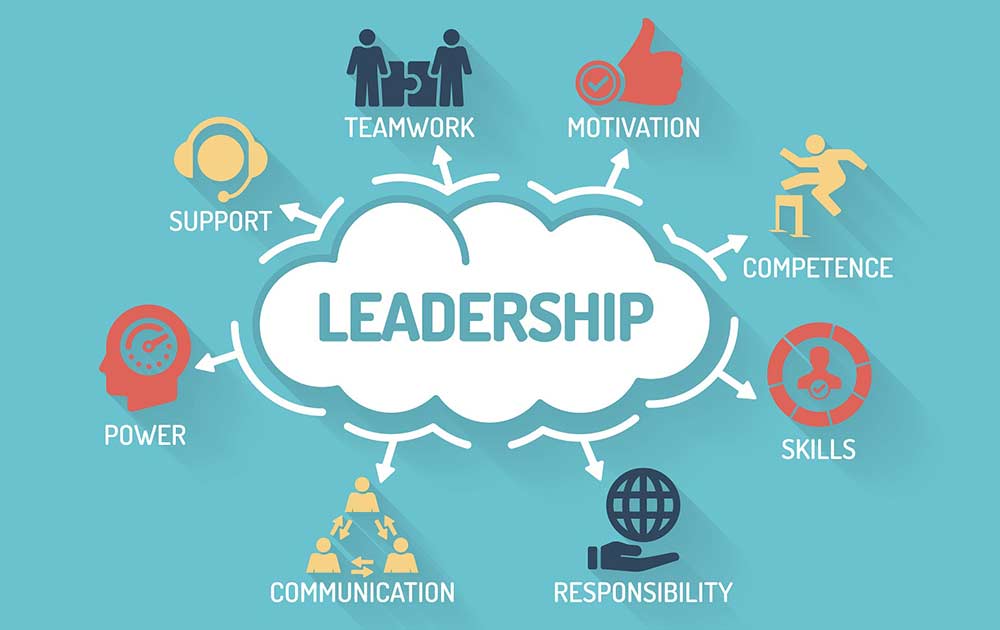
To achieve leadership skills, you can follow these tips
- Take on leadership roles. Whether it’s at work, in a volunteer organization, or in a personal project, look for opportunities to oversee a group of people. You’ll gain practical leadership experience from this, which will help you hone your abilities.
- Improve your communication abilities. One of the most important aspects of leadership is effective communication. To be a better leader, work on enhancing your speaking, writing, and listening skills.
- Study various leadership ideas and styles. To learn about various leadership philosophies and styles, read books, go to workshops, and sign up for classes. This will help you create your own leadership style and gain a better grasp of what works and what doesn’t.
- Accept innovation and change. Leaders must be flexible and open to trying new things. Accept new ideas, be prepared to take chances, and be adaptable in your thinking.
- Set an example for others to follow by leading by example. Set an example for others by acting with integrity, diligence, and professionalism.
- Mentoring others can improve your leadership abilities and offer you a sense of fulfillment. You can mentor others by imparting your expertise and experience.
- Leadership is a lifelong practice that requires constant evaluation and improvement. Perform regular performance reviews, get input from others, and adjust as required.
5. Interpersonal Skills
Employers also value interpersonal abilities. They are looking for applicants who can effectively cooperate, form relationships, and work well with others. This involves the capacity for empathy, comprehension, and respect for other people. Practice active listening, enroll in a negotiating course, and learn more about emotional intelligence to improve your interpersonal abilities.
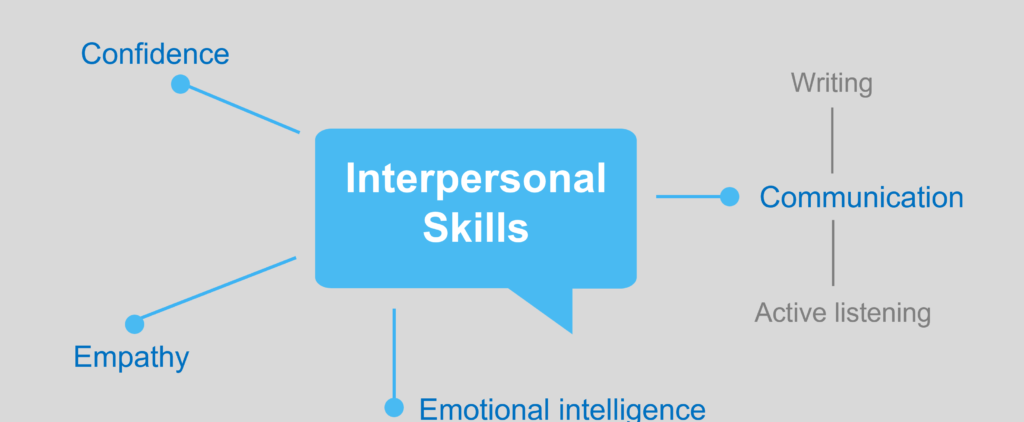
Here are four suggestions for developing interpersonal skills
- Practice active listening by paying close attention and maintaining eye contact with the speaker. Display your interest in the discussion and respect for their viewpoints.
- Take a course in negotiation or dispute resolution: Learn strategies for settling disputes and conducting successful negotiations with others.
- Improve your emotional intelligence by becoming more self-aware and sympathetic toward others. To learn how to create enduring relationships with people, read books and enroll in courses on emotional intelligence.
- Ask for feedback from others. Consult with people you respect and trust for their opinions on your interpersonal abilities. Consider constructive criticism seriously and apply it to your performance.
6. Adaptability Skills
Employers need applicants who can learn quickly, be adaptable, and adjust to changing circumstances. This involves the capacity to be creative, open-minded, and resilient. to improve your ability to adapt, accept new challenges, pick up new abilities, and be receptive to new experiences.
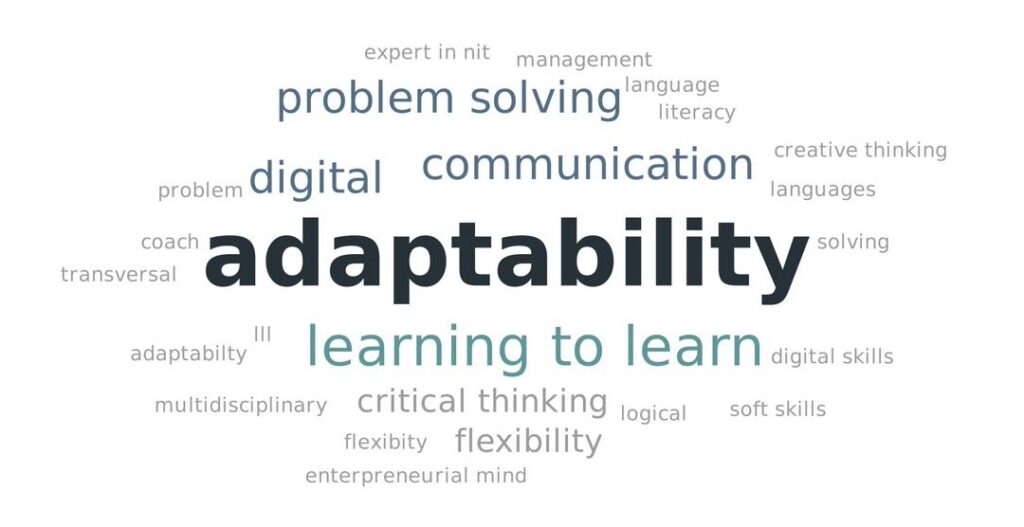
Here are four tips for developing adaptability skills
- Be open-minded. Be attentive to fresh viewpoints and ideas, and welcome change. Be open to trying new ideas and resist the urge to stick to outdated practices or methods.
- Continuous learning to stay ahead of the curve, keep up with current advances in your sector and pick up new skills. To stay current, read books, take courses, and go to seminars or conferences.
- Accept challenges. Take on difficult tasks and projects, and look for fresh chances to learn and develop. Instead of being fearful of failure, seize the chance to grow and learn from it.
- Develop a growth mindset by believing that you can change and advance and by being willing to step outside of your comfort zone. You’ll be more adaptive and robust to change if you adopt a growth mindset.
7. Technical Skills
Employers want applicants with the technical expertise and understanding required to carry out the position. This includes the capability to employ industry-specific software, tools, and technology. Take classes and certifications, practice on your own, and keep up with the newest technology to advance your technical abilities.
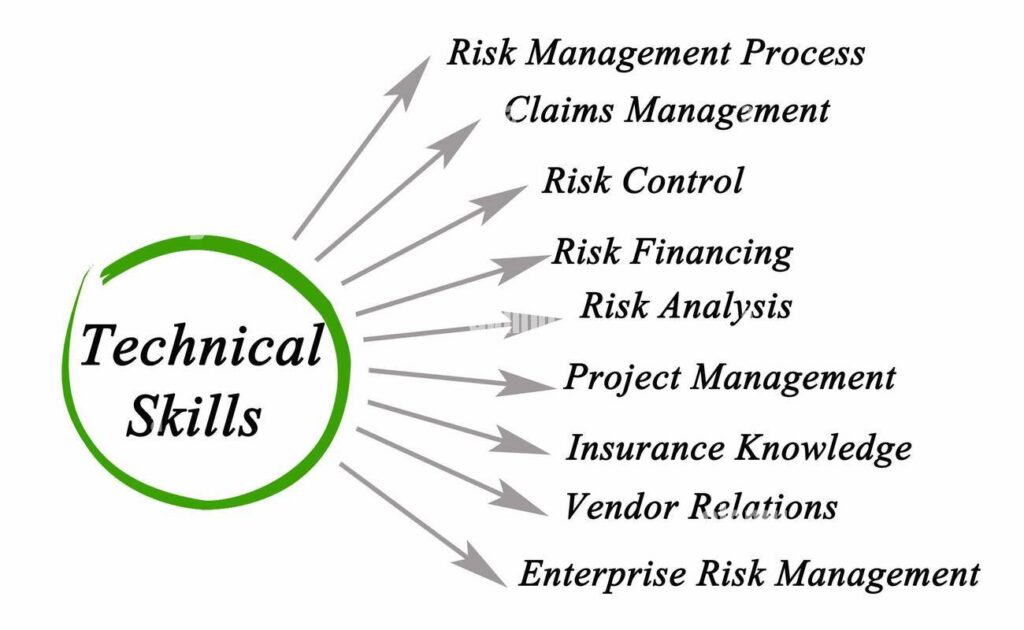
Here are 5 tips for developing technical skills
- Consider training programs and certifications that are especially connected to the tools and technologies utilized in your preferred field. This can provide you with practical experience and a certificate demonstrating your proficiency.
- Work on personal projects or engage in independent practice with the tools and technology. You can also discover tutorials and tools online to help you.
- Keep up to date with technology. Keep up with the most recent developments and improvements in your industry to keep your technical knowledge current. To remain on top of the competition, read industry blogs, participate in webinars or conferences, and network with other experts.
- Find a mentor. Seek out a professional in your industry and ask for direction and advice. You can learn more about the technology and obtain insightful advice from a mentor.
- Work on projects together with friends or coworkers by collaborating with them. This can assist you in developing your technical skills in a group setting while learning from others.
8. Creativity Skills
In today’s fast-paced corporate environment, creativity is a need for all jobs. Applicants with an inventive mindset, the ability to think outside the box, and creative problem-solving skills are in high demand. Being flexible, impulsive, and having bold ideas are examples of this. Reading about creative thinking, practicing brainstorming, and learning more about creative problem-solving are all good ways to improve your creativity.
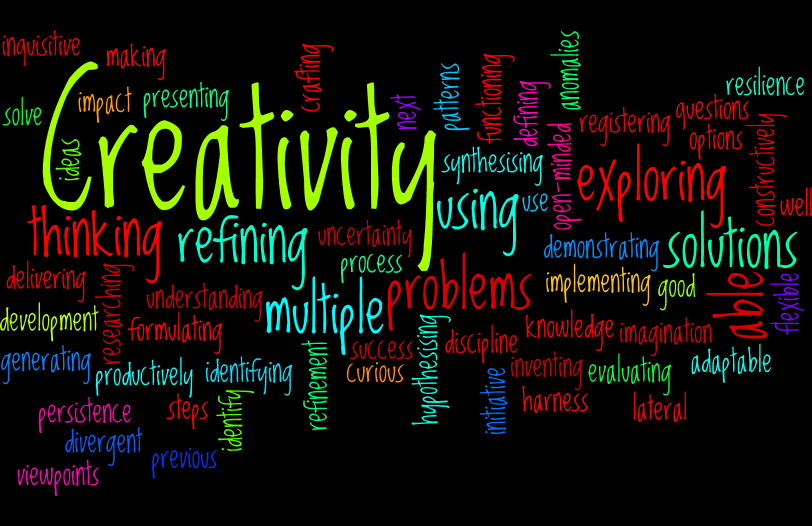
Here are 4 tips for achieving and improving your creativity skills
- Practice brainstorming. Coming up with creative ideas and stretching your imagination can be accomplished through brainstorming. Set aside some time each week to come up with fresh concepts or answers to problems you’re having. Don’t discount any notion as being too irrational or outlandish, and instead, promote free thinking.
- Extend your horizons. You can improve your capacity for original thought by exposing yourself to fresh experiences, viewpoints, and information. Try learning a new skill, exploring a new location, or picking up a new pastime.
- Spend time with those who inspire you and push you to consider new ideas. Surround yourself with creative individuals. Friends, relatives, coworkers, and even complete strangers you meet in creative communities can fall under this category.
- Learn more about creativity through reading. There are a variety of books, articles, and online resources that provide insights into the creative process as well as advice on how to unleash your creativity. Start by reading a couple, then decide which ones speak to you.
9. Professionalism
Each and every work requires professionalism. Applicants that are trustworthy, responsible, and dedicated about their work are what employers are looking for. To be respectful, well-groomed, and on time are examples of this. Wear the proper attire, arrive on time, and keep a cheerful attitude to build your professionalism.
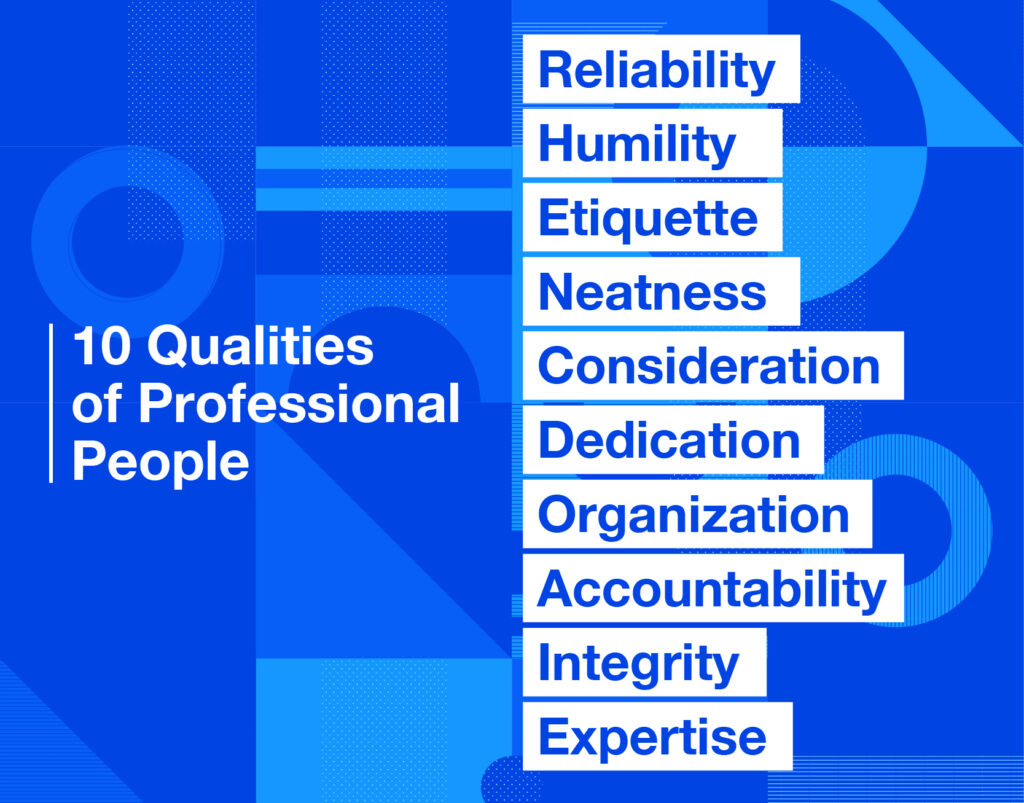
Here are 4 tips to help you achieve professionalism
- Dress professionally. Wear what is acceptable for the workplace and the position you are applying for. To create a good first impression, dress professionally and cleanly.
- Being on time demonstrates your regard for other people’s time and your dependability. Aim to arrive early for appointments and meetings and be sure to prepare in advance for any potential difficulties.
- Keep an optimistic outlook. Your perception of yourself can be greatly influenced by your attitude. Be positive, kind, and nice to coworkers, clients, and bosses.
- Practice effective communication. Professionalism is strongly influenced by effective communication abilities. To establish solid business relationships, communicate clearly, listen intently, and express yourself well.
10. Continuous Learning
Finally, employers need applicants who are dedicated to ongoing education and professional growth. This involves the capacity for curiosity, initiative, and a desire to pick up new skills. Take courses, study books, and go to workshops or conferences in your industry to develop your skills in continual learning.

4 tips for achieving continuous learning skills
- Look for possibilities for professional development. Attend industry-related workshops, conferences, or courses to learn new information and skills.
- Every day, set aside some time to read books, articles, or other materials pertaining to your topic of study.
- Connect with professionals in your sector, take part in online forums, or go to networking events to establish a network With people in your industry. You will be exposed to fresh viewpoints and learn about current trends as a result.
- Ask for opinions. To identify areas for growth and to get insight from others’ experiences, ask for comments from coworkers, managers, or mentors. This will also assist you in identifying your skills and shortcomings as well as the areas where you should concentrate your efforts on lifelong learning.
Conclusion
In conclusion, the top 10 skills employers look for in an applicants are communication skills, problem-solving skills, time management skills, leadership skills, interpersonal skills, adaptability skills, technical skills, creativity skills, professionalism, and a commitment to continuous learning round out the top ten skills employers seek in applicants. You may improve your chances of landing a job and succeeding in your career by developing these talents. Don’t forget to modify your cover letter and resume to reflect the abilities and characteristics the business is seeking.
Related Articles: John Academy, Career Guide
Watch: Top 10 skills that employers want? by Excel to Excel
